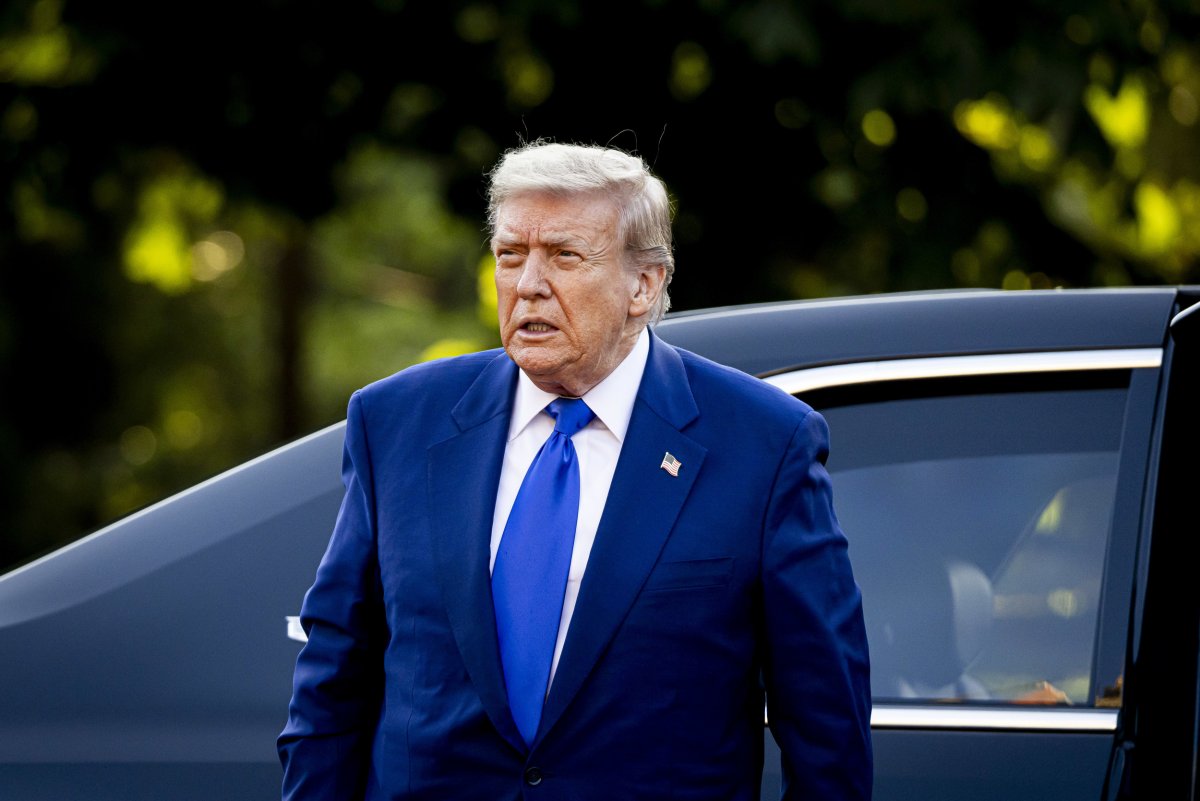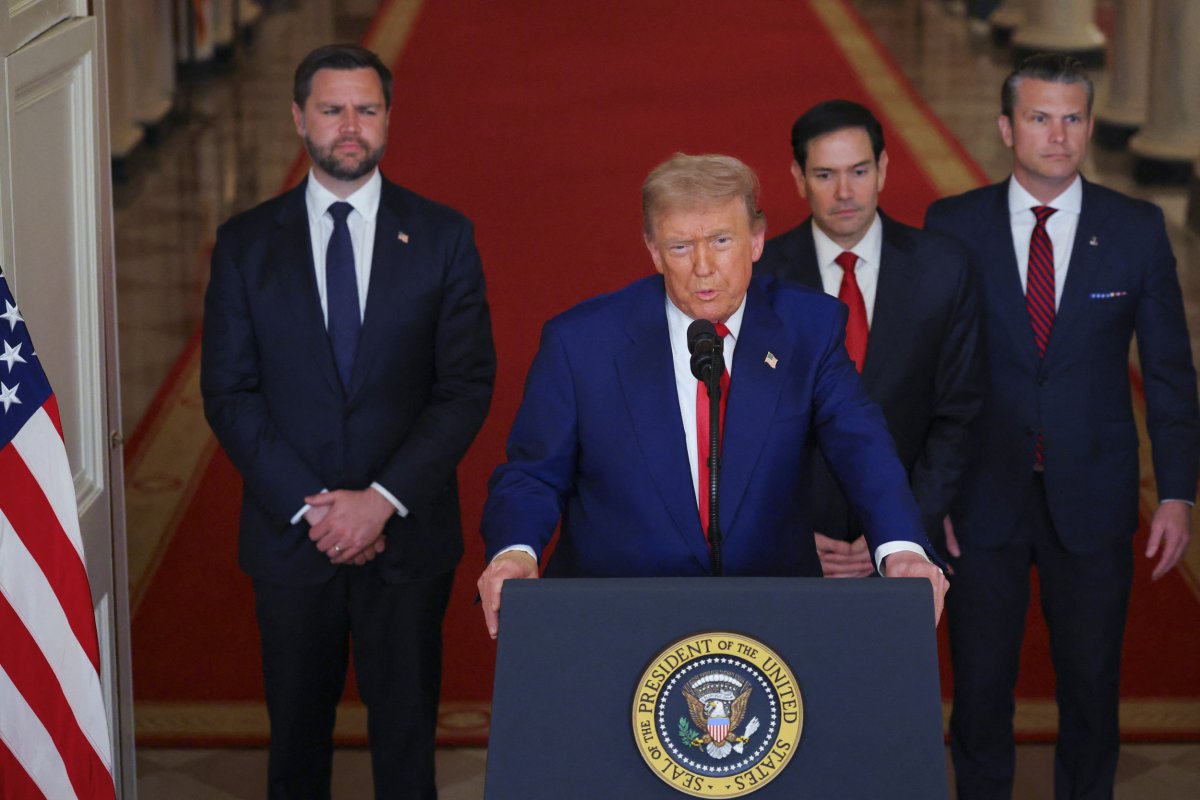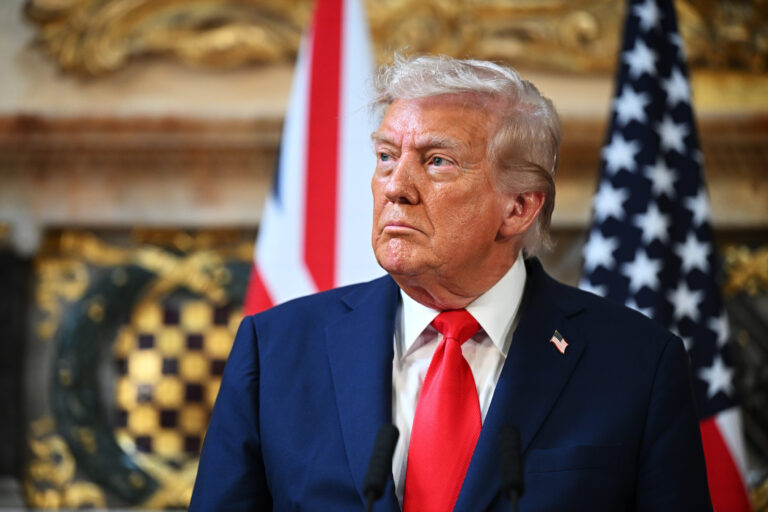
President Donald Trump has hit back at reports that the strikes he ordered on Iranian nuclear sites were not as effective as he had claimed as questions grow over the success of the attacks.
Trump had said that the U.S. strikes had destroyed Iran’s ability to make a nuclear bomb—the stated aim by Israeli Prime Minister Benjamin Netanyahu when he launched Operation Rising Lion on June 13.
But CNN reported it had seen an assessment by the Pentagon‘s Defense Intelligence Agency (DIA) that key parts of the nuclear program, including centrifuges, could be restarted.

Patrick van Katwijk/Getty Images
Yossi Alpher, a former official with Israel’s intelligence agency, Mossad, told Newsweek Wednesday Netanyahu “can dodge the controversy” over disputes about the damaged Iranian sites and that “everyone is used to Trump’s hyperbole.”
Meanwhile Trump and the White House have rejected the CNN report and Newsweek has contacted the White House for further comment.
Why It Matters
Trump ordered strikes on three Iranian sites at Natanz, Isfahan and the underground facility at Fordow.
The president said Saturday’s attacks had “completely and totally obliterated” the Islamic Republic’s nuclear program. But the sentiment from analysts and the chair of the Joint Chiefs of Staff, General Dan Caine, who helped oversee the operation, was more measured.
CNN’s report and Trump’s rejection of it add to uncertainty about Iran’s nuclear weapons capabilities.
What To Know
The CNN report said early DIA intelligence showed the U.S. strikes did not destroy the core components of Iran’s nuclear program and probably only delayed it.
Analysis of the damage is ongoing but this assessment is at odds with statements by Trump and Secretary of Defense Pete Hegseth that the program had been “obliterated.”
Unnamed sources told CNN that centrifuges were mostly intact and enriched uranium vital for making bombs had been shifted from the sites before the strikes, meaning that the operation set Iran’s program back “a few months tops.”
CNN said it was too early for a complete understanding of the effect of the strikes and as yet, it is not clear if the report chimes with other intelligence agencies’ assessments.
Daryl Kimball, executive director of the Arms Control Association (ACA) said in a statement to Newsweek that the U.S. strikes “may temporarily set back Iran’s nuclear program” but long-term would be likely to push Tehran to view nuclear weapons as necessary for deterrence.
He also said military strikes alone cannot destroy Iran’s nuclear knowledge and would strengthen its resolve to reconstitute sensitive nuclear activities, possibly withdrawing from the Nuclear Non-Proliferation Treaty (NPT) and then proceeding to weaponization.
Jennifer Kavanagh, senior fellow and director of military analysis at Defense Priorities, told Newsweek that it was hard to see how much damage was done to Iran’s nuclear sites although U.S. and Israeli strikes were likely to have set back the Iranian program.
However, Iran still has hundreds of scientists who can reconstitute the program, Israeli assassinations aside, she said.
U.S. intelligence before the strikes had suggested that Iran was far from having a weaponized nuclear capability and was not racing for a bomb, although whether that calculation changes afterward is hard to say, added Kavanagh.

CARLOS BARRIA/Getty Images
The Response From Trump and the White House
The White House has acknowledged the existence of the assessment released by CNN but disagreed with it.
Trump posted on the Truth Social platform: “THE NUCLEAR SITES IN IRAN ARE COMPLETELY DESTROYED!” and in a follow up post lambasted “fake news CNN.”
The president also told reporters that “the press is very disrespectful to those great geniuses and patriots that flew those planes.”
White House Press Secretary Karoline Leavitt said in a statement that reports questioning the effectiveness of the strikes on Iran’s nuclear facilities were an attempt “to demean” Trump, and discredit the mission’s pilots.
Israel’s assessment of the strikes also found less damage on Fordow than expected, according to CNN, which reported that Israeli officials believe the combination of U.S. and Israeli military action set back the Iranian nuclear program by two years.
What People Are Saying
White House statement: “The leaking of this alleged assessment is a clear attempt to demean President Trump, and discredit the brave fighter pilots who conducted a perfectly executed mission to obliterate Iran’s nuclear program.”
President Donald Trump: “FAKE NEWS CNN, TOGETHER WITH THE FAILING NEW YORK TIMES, HAVE TEAMED UP IN AN ATTEMPT TO DEMEAN ONE OF THE MOST SUCCESSFUL MILITARY STRIKES IN HISTORY.
“THE NUCLEAR SITES IN IRAN ARE COMPLETELY DESTROYED! BOTH THE TIIMES AND CNN ARE GETTING SLAMMED BY THE PUBLIC!”
Jennifer Kavanagh, senior fellow & director of military analysis, Defense Priorities: “From the point of the Iranian regime, it would be reasonable to think that having a usable nuclear capability is the only safeguard for their security after twice having the rug being pulled out from under them on negotiations.”
Yossi Alpher, Israeli analyst and ex-Mossad official to Newsweek: “So far the IDF (Israel Defense Forces) takes a cautious position and Bibi [Netanyahu] can dodge the controversy. Besides, everyone is used to Trump’s hyperbole.”
What Happens Next
As of Wednesday morning, a ceasefire between Israel and Iran that Trump has boasted about brokering was holding as the assessments into the effectiveness of his strikes on Iran continue.
Meanwhile, Kimball said it is too soon to say how much damage the combined Israeli and U.S. strikes have caused to Iran’s nuclear program and the return of International Atomic Energy Agency inspectors to Iran was necessary.




